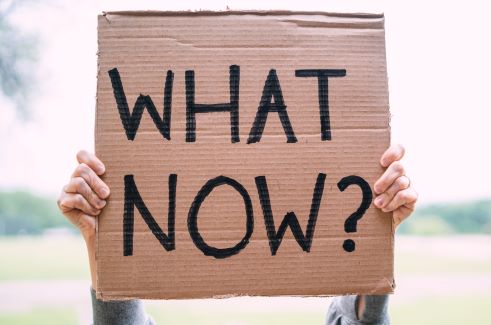Credit Card Rate Hikes

Are Credit Card Rate Hikes Legal?
Rate Hike Triggers
Eight Things to Do If You Experience a Rate Hike
Recap
Credit Card Rate Hikes
Though all credit card companies impose rate hikes to make a profit, some can be downright mean. They may offer an attractive interest rate and keep this rate until you've spent a significant amount of money. And once you're on the hook with a relatively large credit card balance, they hike the rate up on you. You're in a jam at that point, making your interest rate skyrocket while you owe too much to avoid it.
Are Credit Card Rate Hikes Legal?

Yes, credit card rate hikes are generally legal as long as they comply with applicable laws and regulations. Credit card issuers have the right to adjust the interest rates charged on outstanding balances, subject to the terms and conditions detailed in the cardholder agreement.
The specific terms governing rate increases should be clearly outlined in the credit card agreement provided to the cardholder. Federal laws, such as the Truth in Lending Act (TILA), require credit card issuers to disclose the terms of the credit agreement, including information about interest rates, fees, and any potential rate changes. Also, the Credit Card Accountability Responsibility and Disclosure Act of 2009 (CARD Act) provides certain protections to consumers, such as requiring issuers to provide advance notice before increasing interest rates.
The notice period required before implementing a rate hike can vary depending on the circumstances and the card issuer. The CARD Act generally requires issuers to provide a 45-day notice before increasing the interest rate on existing balances. However, there may be exceptions or variations to this rule.
It's important for cardholders to carefully review their credit card agreements and understand the terms and conditions associated with their credit cards. By doing so, they can be aware of their rights, potential rate changes, and any steps they can take to mitigate the impact of rate hikes, such as paying balances in full or exploring alternative credit options. Return to Top
Rate Hike Triggers

Credit card companies give reasons for any rises, some of which are valid. However, there are some which seem highly unfair. Moreover, a lot more sharing of information goes on in the financial industry than you'd expect. Here are some things that can saddle you with extra-high penalty rates.
Paying late. The company will take away your attractive rate if you pay your bills late. This is common.
Bouncing checks. This is an action that is recorded in your credit report and may be acted upon by your card companies.
Spending on other cards. If you spend heavily or incur penalties on one card, don't be surprised if another hears about it and raises your rates, too!
Defaulting on another bill. Similar to the last trigger, bills you don't pay are placed on your credit report. The next time your issuer checks your credit rating (they usually do it quarterly), they'll spot it and want to raise your rate.
So that you know, most credit card contracts only require the lender to give you about two weeks' notice. Further, as these companies share information when one of your cards' rates goes up, they'll all go up. This is an excellent reason to be wary of credit cards in general. Return to Top
Eight Things To Do If You Experience a Rate Hike

If you experience a credit card rate hike, here are some steps to consider:
- Review the notice: Carefully read the notice you receive from your credit card issuer regarding the rate hike. Understand the details, including the effective date and the reason for the increase.
- Assess your options: Evaluate how the rate hike will affect your finances and ability to manage your credit card debt. Determine whether it makes sense to keep the card or explore alternatives.
- Contact your credit card issuer: Inquire about the reason for the increase and if there are any options available to mitigate the impact, such as negotiating for a lower rate or exploring promotional offers.
- Explore balance transfer options: If the rate hike makes it challenging to manage your debt, consider transferring it to a credit card with a lower interest rate. Look for balance transfer offers with an introductory period with a lower or 0% interest rate.
- Consider refinancing or consolidation: If you have substantial credit card debt, explore options like personal loans or debt consolidation programs that offer lower interest rates and more manageable repayment terms.
- Pay off balances promptly: Focus on paying off your credit card balances as quickly as possible to reduce the rate hike's impact. Allocate more funds towards debt repayment or adjust your budget to free up additional money.
- Improve your credit score: Make timely payments, keep your credit utilization low, and manage your overall financial health. A higher credit score may help you secure better interest rates and terms in the future.
- Seek professional advice: If you find it challenging to navigate the situation independently, consider seeking professional assistance from a financial advisor or credit counseling service. They can offer personalized advice tailored to your specific circumstances.
Remember, each situation is unique, and the best course of action depends on your financial goals and resources. Return to Top
Credit Card Rate Hike Recap

Staying proactive and managing credit card debt responsibly by paying bills on time, avoiding unnecessary balances, and understanding the terms of your credit card agreement can help minimize the impact of rate hikes.
Rate hikes may affect both existing balances and future transactions, impacting the cost of carrying debt and the affordability of credit card usage. Consequently, cardholders should review their credit card agreements or terms and conditions to understand the circumstances under which rate hikes may occur and how they will be notified.
Rate hikes can significantly impact the cost of borrowing, requiring cardholders to reevaluate their repayment strategies and consider alternative options for managing their debt.
Cardholders who consistently carry balances should explore strategies such as balance transfers or negotiating lower interest rates with their credit card issuers to mitigate the impact of rate hikes. Return to Top
Private Label Rights Article Reports Available For Purchase
Real Estate Website Content
Real Estate Marketing Reports
Home Page > Real Estate Articles >> Credit Card Rate Hikes

